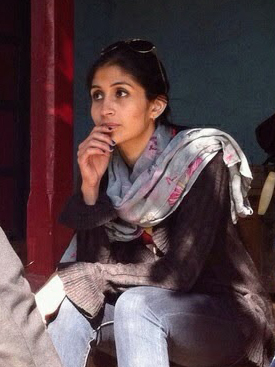Ishani Dasgupta is a Joint Degree, Ph.D Candidate in the Departments of Anthropology and South Asia Studies. Her research questions are concerned with emergent and alternate forms of citizenship and community amongst the politically precarious. Her dissertation explores the formation of a deterritorialized Tibetan political entity that emerges through resistance practices, political participation, and alternate engagements with the concept of citizenship, despite being stymied by geopolitical forces which create structural conditions of statelessness. She has received the Dissertation Research Fellowship from the Wenner-Gren Foundation and the Junior Fellowship, from the American Institute of Indian Studies and her research has been supported by various grants internal to Penn. She has won the Association of Political and Legal Anthropology’s Best Graduate Student Paper Prize, 2019, for her essay, “The Burning Body and the Withering Body: Embodied Resistance Practices in the Tibetan Community.” At Penn, she was a graduate fellow at the Andrea Mitchell Center for the Study of Democracy 2020-2021, before coming to the Wolf Humanities Center as the Graduate Research Assistant 2021-2022.
Ishani Dasgupta
Wolf Humanities Center Associate Scholar
2021—2022 Forum on Migration
Ishani Dasgupta
Ph.D. Candidate, Anthropology and South Asia Studies
Emergence of a Deterritorialized Nation: How Tibetan Resistance Practices Confront the Precarity of Statelessness
My dissertation considers the political practices of stateless Tibetans. I ask: How do politically precarious communities articulate alternate models of nationhood in a global regime of nation states that seeks to erase them? To answer, I study practices ranging from invocations of national fervor across a transnational “citizenry” following self-immolations and hunger strikes, to voting, paying taxes to an exile state, and forging and celebrating their affective ties as a national community. In surveying a shifting geopolitical landscape from the Cold War to the Global War on Terror, I show that far from being mere victims of their circumstances, the Tibetans are active political actors capable of protecting the interests of their fragile polity. But this is no triumphant story: I also show how these global shifts exact costs on the community, fomenting schisms, paranoia, and intracommunity conflict.



